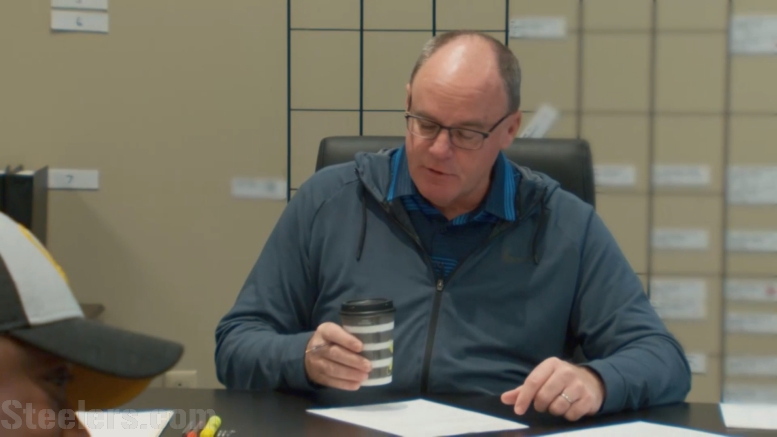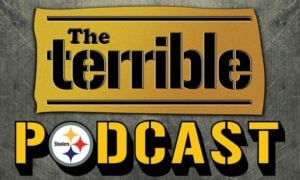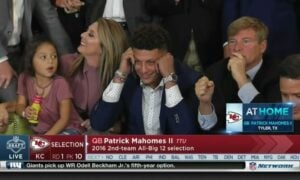The Pittsburgh Steelers used fewer than seven selections on draft picks during the 2020 NFL Draft, the first time that that was true of any draft since 2003. That year, they traded up in the first round in order to draft Troy Polamalu, which proved to be a decent move, as it did land them a Hall-of-Famer who would help them win two Super Bowls.
As you would guess, the reason again that they had fewer than seven picks was because of trades. Their third-round pick they lost in last year’s trade up for Devin Bush. But the in-season trade for Minkah Fitzpatrick is what cost them their first-rounder. Still, a first-team All-Pro safety is a solid consolation prize.
Not that the Steelers were consoling themselves over the lack of a first-round pick, the first time since before Chuck Noll’s arrival that the organization has failed to make a selection in the first round. It was a move that was way out of character, but as Kevin Colbert recently told Mike Florio, there was no temptation to try to trade back into the round—partially because they knew that they couldn’t if they wanted to.
“We knew we didn’t have the ammunition to do it, and we felt very comfortable in not having a first-round pick in this draft, obviously, because we had Minkah. But also, getting to sit back and watch how this would unfold, because when we all went into this, we had no idea what to expect”, he said. “I can’t congratulate Ken Fiore and the league [enough] for doing the work to make this come off as almost flawlessly as it did”.
“But we were very intimidated by the whole process, so not having a pick, there was some comfort in that”, he added. “And we know that we couldn’t trade back in. We weren’t trading any future picks. We were comfortable in knowing that that pick was used on Minkah, and we still said that we should be able to get six good players”.
As he also pointed out, trades were very against-trend this year, especially in the first round. The first trade didn’t come until pick 13. There only ended up being a few trades in the first round, as I recall, and a lower amount than normal.
“The one thing we sensed was, the trades, there seemed to be far less this year, especially in the early rounds. People were just saying, ‘no, we’re picking’”, he said. I’m not even sure how long it’s been since the last time a draft went through its top 10 picks without a single trade being made, but it’s fair to speculate that that was a sign of the times. And another reason this proved to be a better year than normal for Pittsburgh not to have a first-round pick, if they had to be without one.








